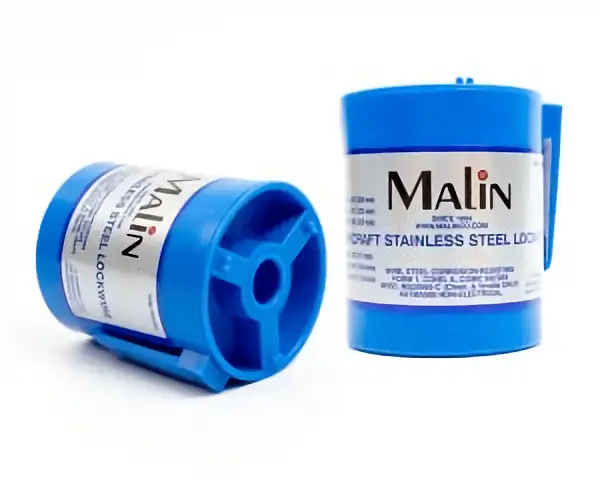When bolts become loose, Malin Co. MS20995C32 lock wire secures them as firmly as a lock by counteracting them with more tightening. It reinforces bolts, nuts & fasteners in industrial equipment, aircraft, moving vehicles & marine vessels.
Features:
- Malin Co. MS20995C32 lock wire is colour-coded for easy wire identification.
- It features stainless steel construction to resist rust and corrosion in harsh marine environments.
- This MS20995C32 lock wire is easy to shape and form.
- Selected models are packed in a recyclable canister made of high-density polyethene to protect against grease & corrosive materials.
Standards and Approvals:
Frequently Asked Questions:
Q. What are the things one should keep in mind before using a lock wire?
A.
- Lock wires shouldn't be installed in such a way that they are subjected to chafing, vibration fatigue or additional tension other than the tension imposed on the wire to prevent loosening.
- Ensure that the units to be locked and wired have been properly torqued.
- Under-torquing or over-torquing to achieve proper hole alignment is not recommended.
Q. Why are wire locking turnbuckles and nuts used?
A. Positive wire locking, often known as safety wiring, is a form of locking mechanism used to secure cap screws, nuts, bolt heads and turnbuckle barrels that cannot otherwise be secured. In locations where vibration could release a bolt, safety wire is required.
Q. What material makes up a Lockwire?
A. Several alloys, including Monel, Inconel, stainless steel, carbon steel, aluminium and even copper are used to make a traditional safety locking wire.
 Change Country
Change Country

